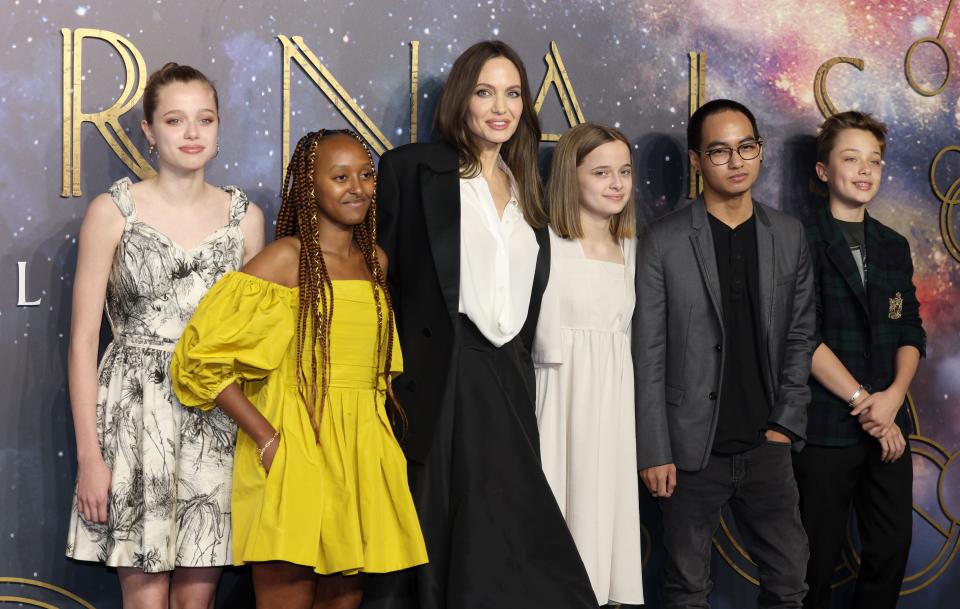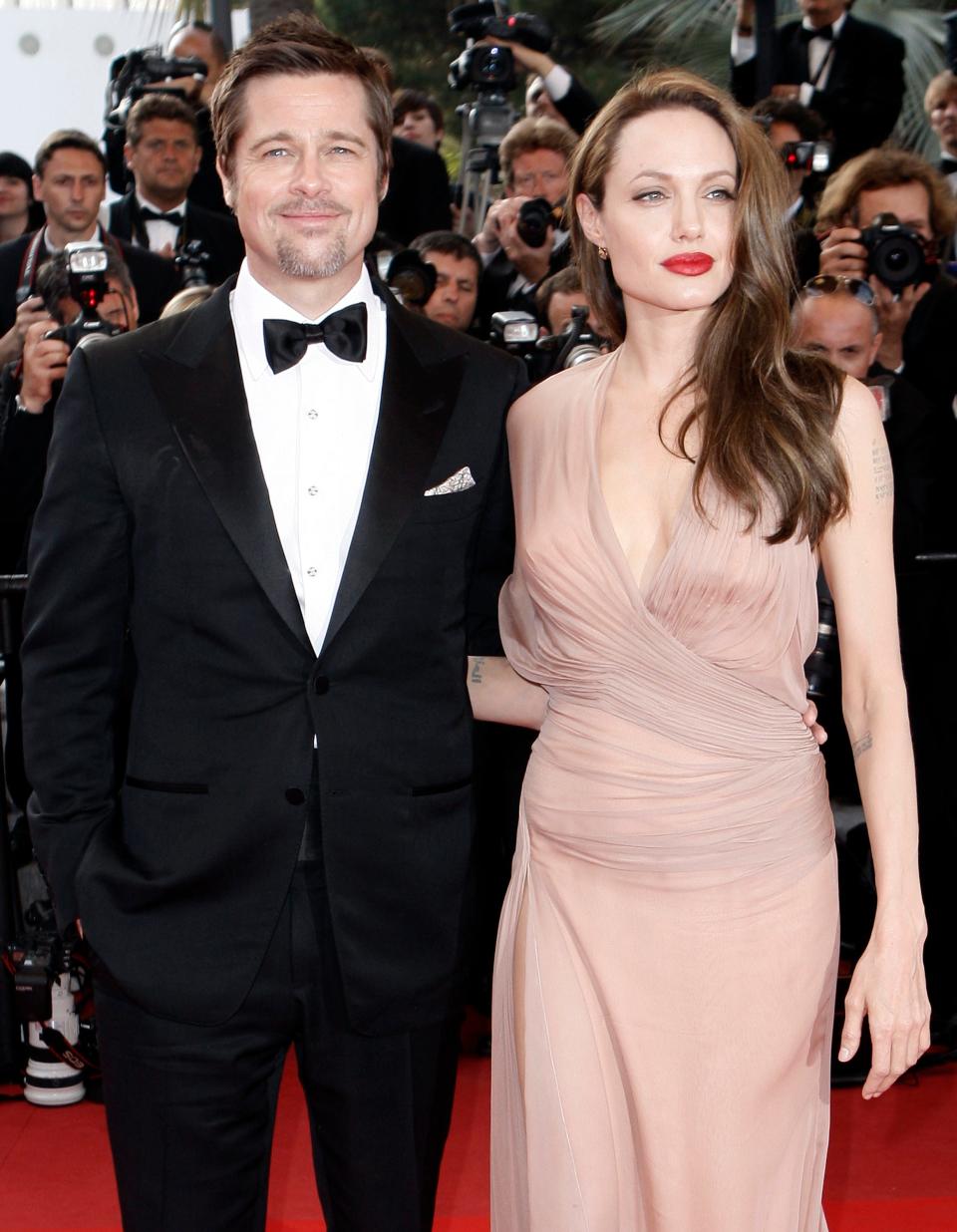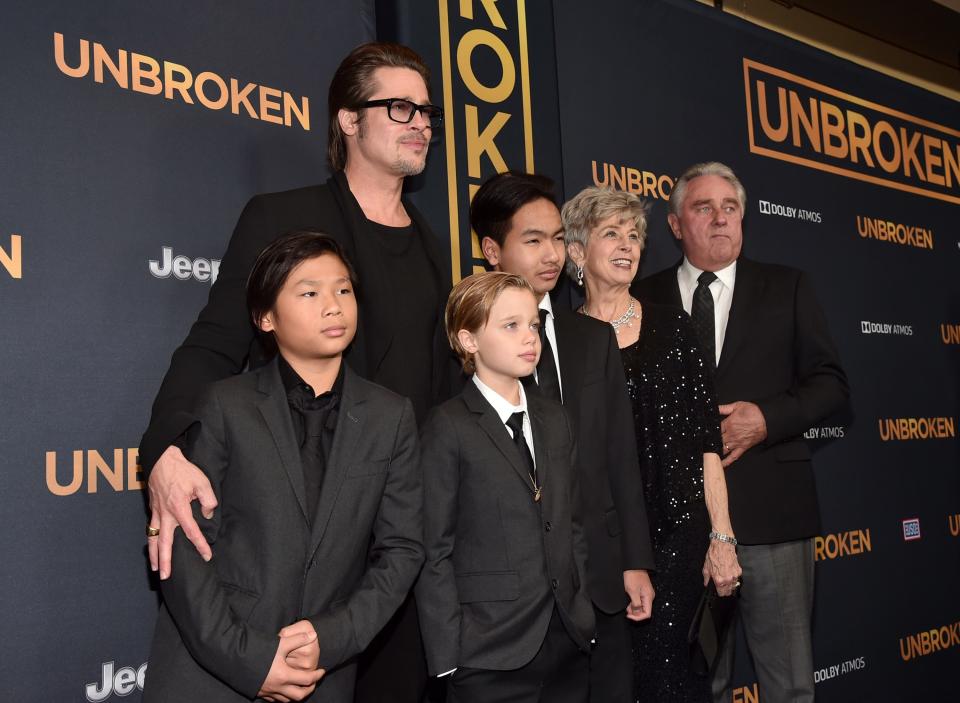Calif. Supreme Court denies Brad Pitt's petition for review, custody case with Angelina Jolie likely to start over
California's Supreme Court has rejected Brad Pitt's appeal in his bitter custody battle with ex-wife Angelina Jolie, upholding a lower court ruling that will likely force them to relitigate the custody of their kids.
The high court issued its decision Wednesday with no explanation other than: "Petition for review & application for stay denied."
Jolie was in London Wednesday with five of ther children to attend the U.K. premiere of her latest film, "Eternals," which hits theaters Nov. 5.
Jolie's appellate lawyer, Robert Olson, issued a statement to USA TODAY, saying his client welcomed the decision.
“Ms. Jolie is focused on her family and pleased that her children’s wellbeing will not be guided by unethical behavior," the statement said. "As reinforced by California's appellate courts, our judiciary prioritizes ethics and children’s best interests, and won't tolerate judicial misconduct to reward the interests of a party. Ms. Jolie is glad for the family to now move forward cooperatively."

A spokesperson for Pitt also issued a statement to USA TODAY, saying Wednesday's decision by the California Supreme Court not to review a "technical procedural issue" does not change "the extraordinary amount of factual evidence which led the trial judge—and the many experts who testified—to reach their clear conclusion about what is in the children’s best interests," the statement read. "We will continue to do everything that’s legally necessary based on the detailed findings of the independent experts.”
For Pitt and Jolie and their protracted split, which began in 2016 after only two years of marriage and a previous 10 years together, the appellate court's decision, which now stands, means that their custody fight over their five minor children, which was nearing an end, would have to start over with a new judge.
The former couple's eldest, Maddox, is 20. Their other children are Pax, 17, Zahara, 16, Shiloh, 15, and twins Vivienne and Knox, 13.
More: Angelina Jolie's daughters, Shiloh Jolie-Pitt's sneakers rock Rome 'Eternals' premiere
The decision means the high court won't review the July decision by a state appeals court which handed Jolie a major victory by disqualifying the private judge the couple hired to handle their divorce and their even more contentious custody dispute over their six kids, five of whom are still underage.
By rejecting Pitt's appeal, the high court appeared to be signaling that the issues raised by Pitt's legal team are not relevant beyond a long-running dispute between two A-list movie stars over whether they will share equally in custody of their kids.
Pitt's legal team has said the decision not to hear the actor's appeal could possibly dismantle the state's network of private judges in California, affecting tens of thousands of legal cases in the state, including non-celebrity divorcing couples and their children, and blocking the continued functioning of the state's overwhelmed judicial system.
In civil matters, such as divorces or custody cases that prefer to move behind closed doors, the California judicial system depends on private judges who are paid by the litigants, under the supervision of the courts, to read briefs, conduct trials and issue rulings.
More: Brad Pitt challenges ruling that gave Angelina Jolie a big win in custody battle, Jolie responds

Enshrined in California's constitution for decades, the private judging system aims to provide quicker resolution (and more privacy) in legal cases involving people who are willing to pay, leaving the official state judges and court system more available for criminal cases and for citizens who have fewer resources.
After a virtual public hearing on July 9, the 2nd District Court of Appeal in Los Angeles agreed with Jolie that the couple's private judge, John Ouderkirk, didn't sufficiently disclose in a timely manner other business relationships with Pitt's attorneys, thus raising potential questions about his impartiality.
Pitt's lawyers argued in their brief that Ouderkirk's failure to disclose two links to Pitt's divorce lawyer, Lance Spiegel, was "a minor and inadvertent administrative error" unrelated to the merits of the custody dispute itself.
More: Angelina Jolie's daughter Zahara rocks mom's 'vintage' Oscars dress: See the red carpet photos
The appeals court disagreed. “Judge Ouderkirk’s ethical breach, considered together with the information disclosed concerning his recent professional relationships with Pitt’s counsel, might cause an objective person, aware of all the facts, reasonably to entertain a doubt as to the judge’s ability to be impartial. Disqualification is required,” the court ruled.

Private judges in California are usually retired state court judges who often have extensive professional links to local lawyers, so the issue of full disclosure matters. But during the virtual appellate court hearing, some of the justices questioned in blunt terms whether California should even have a system of private judges.
Ouderkirk declared the couple divorced in April 2019, but took up the issue of custody as a separate matter and behind closed doors.
The vitriol that has peppered this divorce from the beginning started up again in the spring of 2021, as Pitt was tentatively awarded joint custody and Jolie's team criticized Ouderkirk for not allowing the couple's children to testify in the custody proceedings. This was after she filed a petition to disqualify the judge from the case because of the disclosure issues.
"If you're going to play the role of a paid private judge you have to play by the rules and the rules are very clear, they require full transparency," Jolie's appellate attorney Olson argued before the appeals court. "Matters that should have been disclosed were not disclosed....If rules have no consequences they are empty."
Pitt's legal team, which includes noted First Amendment attorney Theodore Boutrous Jr., has argued that Jolie's team was aware of disclosure issues for months but acted only after Ouderkirk's tentative joint custody decision.
Boutrous condemned Jolie's strategy as "a stalling tactic" and legal "gamesmanship," which California courts usually frown upon, to keep Ouderkirk's tentative joint custody decision from going into effect.
Holly Davis, a trial lawyer and founding partner of Austin divorce firm Kirker Davis LLP, says the custody case will have to be relitigated with a new judge, though it's possible that judge could come to the same decision as Ouderkirk, thus leaving Jolie in the position of "winning the battle but losing the war," Davis said.
But Davis doesn't think the system of private judging in California will be crippled or upended; it just reminds everyone that the rules have to be followed to the letter.
"In a case as large as this one, where the stakes are so high and the parties' profiles are so high, you have to make sure (litigants and lawyers) are studious in addressing any relationships with a private judge," Davis said.
"This is about the optics: When you give a private judge so much power, you've got to make sure there is no evidence of impropriety."
This article originally appeared on USA TODAY: Brad Pitt custody case petition denied by California Supreme Court
